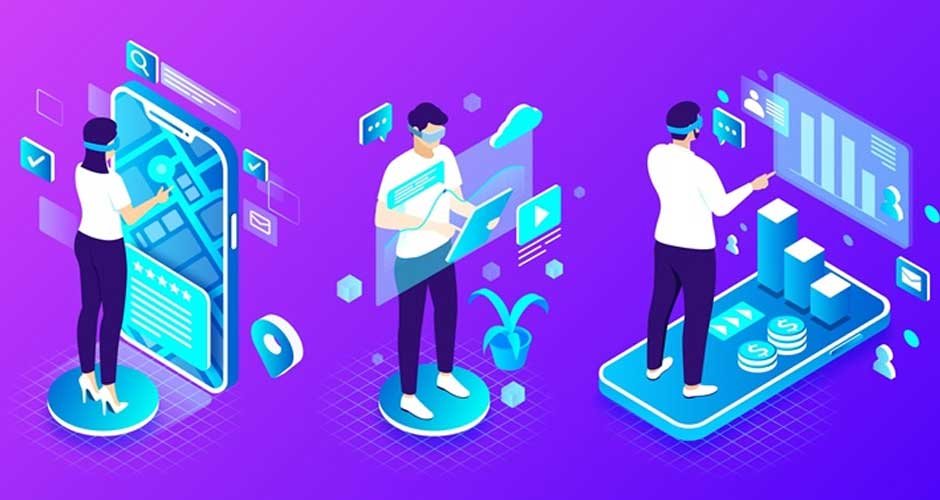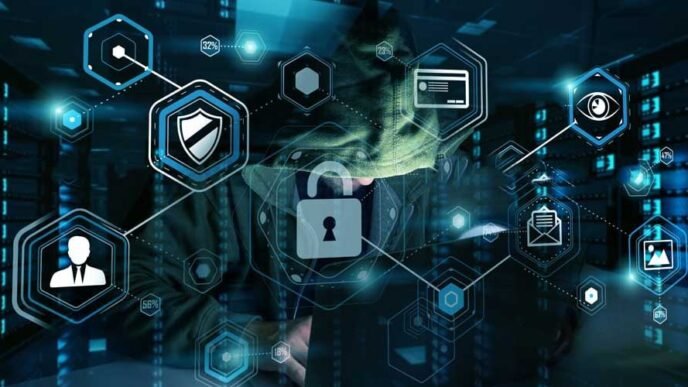Extended Reality (XR) is a game-changer in business operations. This transformative technology revolutionizes how companies engage with customers, train employees, design products, and streamline operations. It encompasses a wide range of immersive experiences that combine the physical and digital worlds, including Virtual Reality (VR), Augmented Reality (AR), and Mixed Reality (MR).
The impact of XR is felt across diverse industries such as healthcare, education, manufacturing, and retail. From enhancing patient care to transforming classroom learning, XR has the potential to drive innovation and increase efficiency in various sectors. As these technologies continue to evolve, their value in driving business growth and transformation is becoming more evident than ever before. Interact with IT Support Houston experts to harness the power of extended reality for your business.
In this article, we will explore what is extended reality in business and extended reality applications.
What is Extended Reality in Business?
Extended Reality (XR) is an umbrella term that encompasses various technologies, including virtual Reality (VR), augmented Reality (AR), and mixed Reality (MR). XR refers to the spectrum of experiences that combine real and virtual environments, creating immersive and interactive digital experiences.
Virtual Reality immerses users in a completely virtual environment, while augmented Reality overlays digital elements onto the real world. Mixed Reality blends aspects of both VR and AR, allowing users to interact with real and virtual objects simultaneously. Extended Reality has applications across various industries, from entertainment and gaming to education and healthcare, offering innovative ways to engage with digital content.
7 Applications of Extended Reality For Business
-
Gaming and Entertainment
Extended Reality (XR) has found significant applications in gaming and entertainment. By seamlessly blending virtual and natural environments, XR technologies such as virtual Reality (VR), augmented Reality (AR), and mixed Reality (MR) have revolutionized the way users interact with digital content.
In the gaming industry, XR offers immersive experiences that transport players into fantastical worlds, enhancing gameplay and increasing engagement. Moreover, XR has been leveraged in the entertainment sector to create interactive experiences for audiences, from live events to museum exhibitions. XR’s versatility and innovation continue to push boundaries in gaming and entertainment, offering limitless possibilities for creative expression and user engagement.
-
Education and Training
Extended Reality (XR) has found diverse applications in education and training. By integrating virtual, augmented, and mixed realities, XR technology offers immersive learning experiences that enhance engagement and retention. In educational settings, XR can simulate real-world scenarios, allowing students to practice skills in a safe environment.
In addition, XR is revolutionizing training programs by providing hands-on experience without needing physical equipment or travel expenses. This technology is proving invaluable in fields such as medicine, engineering, and military training, where practical experience is essential. As XR advances, its role in education and training will only become more prominent, shaping the future of learning methodologies.
-
Healthcare
Extended Reality (XR) technology has found significant applications within the healthcare sector, revolutionizing patient care and medical training. By integrating Virtual Reality (VR), Augmented Reality (AR), and Mixed Reality (MR) into healthcare practices, professionals can enhance medical education, simulate surgical procedures, and improve patient outcomes.
XR technology allows immersive training experiences, precise surgical planning, and enhanced patient rehabilitation programs. This innovative approach transforms traditional healthcare practices and contributes to more efficient diagnoses, treatments, and therapies in the medical field.
-
Architecture and Design
Extended Reality (XR) technology has found significant applications in architecture and design. By utilizing XR tools such as Virtual Reality (VR) and augmented reality (AR), architects and designers can create immersive experiences that allow clients to visualize spaces and structures realistically before they are built.
This technology enables stakeholders to make more informed decisions, streamline the design process, and enhance collaboration among project teams. Architects can use XR to present their designs more engagingly, while designers can leverage it to showcase their concepts more clearly.
-
Retail and Marketing
Extended Reality (XR) technology has significant applications in retail and marketing. By leveraging XR tools such as Virtual Reality (VR) and augmented Reality (AR), businesses can enhance customer engagement, provide immersive shopping experiences, and drive sales.
Furthermore, XR allows customers to visualize products more interactively, increasing confidence in purchasing decisions. Marketing campaigns incorporating XR can create memorable brand experiences, increase brand loyalty, and differentiate businesses from competitors. As technology continues to evolve, the integration of XR in retail and marketing strategies is poised to revolutionize how businesses interact with consumers and showcase their products or services.
-
Tourism and Cultural Preservation
Extended Reality (XR) technology has found valuable applications in tourism and cultural preservation. By leveraging XR, tourists can experience destinations and historical sites in immersive ways, transcending physical boundaries. This technology enables virtual tours of inaccessible or endangered cultural heritage sites, fostering digital preservation efforts.
Moreover, XR enhances tourism’s educational value by providing interactive learning experiences that deepen visitors’ understanding of diverse cultures and histories. Through XR applications, the tourism industry is poised to revolutionize travel experiences and contribute significantly to preserving global cultural heritage for future generations.
-
Remote Collaboration
Extended Reality (XR) has revolutionized remote collaboration by offering immersive experiences that bridge the physical and digital worlds. Through XR technologies such as Virtual Reality (VR) and Augmented Reality (AR), individuals can collaborate in real-time regardless of their physical location.
This has significantly benefited businesses with remote teams or global offices, allowing for more interactive and engaging communication. By partnering with the Managed IT Services Houston team, organizations can enhance productivity, foster creativity, and streamline workflows in a way that was previously unimaginable with traditional video conferencing tools.
Conclusion
The emerging applications of extended Reality (XR) are set to revolutionize how businesses operate and engage with customers. From immersive training simulations and virtual collaboration spaces to enhanced customer experiences and innovative marketing campaigns, XR technologies offer businesses a wide range of possibilities to explore. As XR continues to evolve and become more accessible, companies that embrace these technologies stand to gain a competitive edge by unlocking new levels of creativity, efficiency, and engagement in their operations. The future of business is deeply intertwined with the boundless possibilities of extended Reality.












